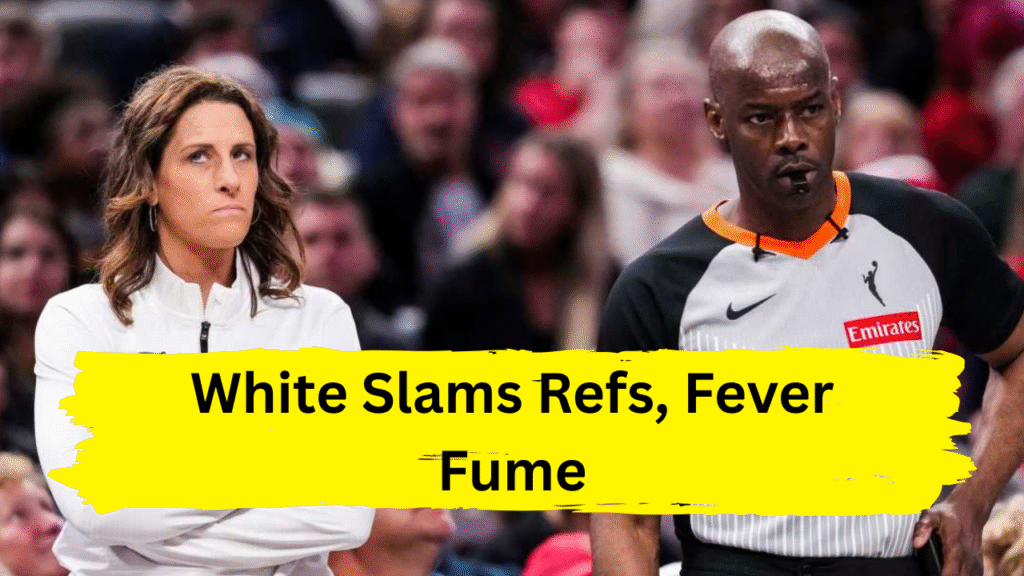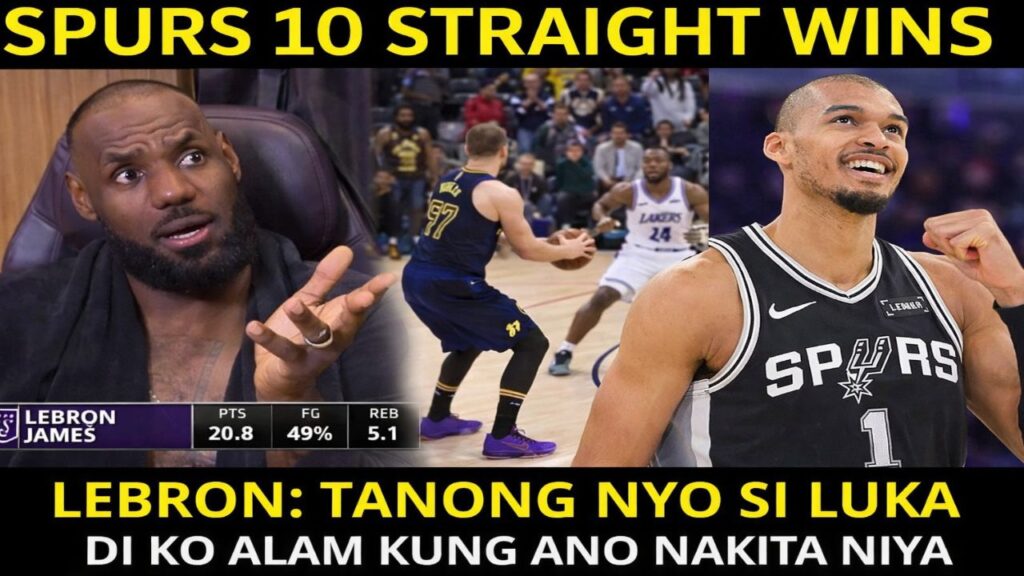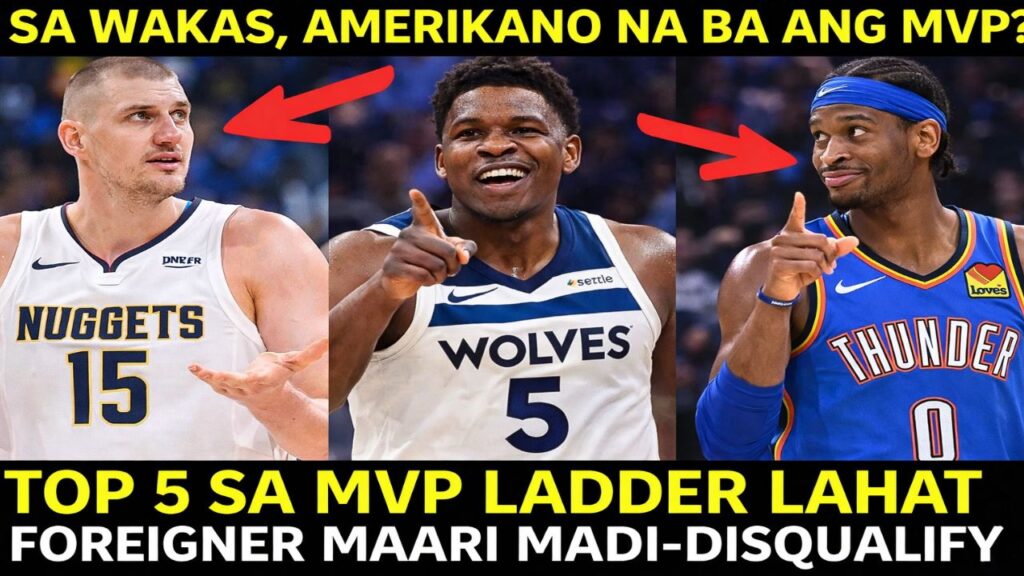The Indiana Fever’s 2025 WNBA season is only four games old, but head coach Stephanie White has already sounded the alarm on what she calls “egregious” officiating that has overshadowed her team’s early performances. Following a narrow 90–88 loss to the New York Liberty on May 24, White unleashed a fiery critique of the league’s referees, highlighting a pattern of contentious calls—and no-calls—that have left the Fever feeling disrespected and disadvantaged. At the heart of the controversy is rookie phenom Caitlin Clark, whose late-game collision with Liberty guard Natasha Cloud became the latest flashpoint in a growing debate over consistency, fairness, and the WNBA’s accountability in high-stakes moments.
The Final Play: A No-Call That Ignited Outrage
With seconds remaining in Saturday’s game, the Fever trailed by two points and needed a defensive stop to stay alive. Instead, the Liberty’s Natasha Cloud stripped the ball from Caitlin Clark in what appeared to be a physical exchange. Replays showed Cloud’s shoulder making contact with Clark’s arm as she attempted to secure possession, but officials opted not to blow the whistle, sealing the Fever’s fate. Clark immediately protested, shouting at referees while teammates like Sophie Cunningham rushed to her defense.
For White, the no-call was emblematic of a broader trend. “I thought she got fouled. I think it’s pretty egregious what’s been happening to us the last few games,” White said postgame. She emphasized that the Fever’s aggressive playstyle—attacking the rim rather than settling for outside shots—should warrant more equitable officiating. “The disrespect right now for our team has been pretty unbelievable,” she added, questioning whether the league’s system for addressing grievances truly works.
A Season of Frustration: Stats, Bias, and Systemic Issues
While the Fever sit at 2–2, their record masks mounting frustration. Through four games, Indiana has been called for 84 fouls—the second-most in the league—while drawing 82 fouls, ranking third. Though the raw numbers suggest balance, White argues the timing and impact of calls have skewed against her team. For instance, in the Liberty game alone, three pivotal decisions went against Indiana: a no-call on DeWanna Bonner’s contested layup, a foul called on Lexie Hull against Sabrina Ionescu (leading to game-winning free throws), and the final no-call on Clark.
White’s critique extends beyond isolated incidents. She pointed to the WNBA’s formal process for submitting officiating complaints, which teams use to flag disputed calls. “I don’t know if I have a feeling that the system works,” she said, hinting at a lack of accountability. Her remarks risk fines under the league’s policies against publicly disparaging referees, but White’s willingness to speak out underscores her urgency for change.
Caitlin Clark: Lightning Rod for Controversy
Clark, the Fever’s star guard, has found herself at the center of multiple controversies this season. Beyond the Liberty game, she drew attention in the preseason for earning a technical foul after slamming the ball in frustration—a moment that reignited debates about her emotional intensity. However, the rookie has largely avoided commenting on officiating. When asked about the no-call against Cloud, Clark demurred, saying, “I have to go back and watch”.
Her reserved response contrasts with her on-court demeanor. Clark’s aggressive drives to the basket and vocal appeals for fouls highlight her understanding of the game’s physicality—and her expectation of fairness. Yet, as White noted, the Fever’s strategy of attacking the paint has not translated to proportional free-throw opportunities, fueling perceptions of bias.
Broader Implications for the WNBA
The Fever’s grievances arrive at a critical juncture for the WNBA. The league has actively promoted its “No Space for Hate” initiative, aiming to combat discrimination in arenas and online. However, White’s accusations of officiating inequity raise questions about whether the league’s commitment to fairness extends to its on-court product.
Fans and analysts have also weighed in. Social media debates dissect whether Clark’s prominence as a white superstar—compared to rivals like Chicago’s Angel Reese—plays a role in how referees perceive her physicality. Notably, Reese was subjected to alleged racial taunts during a game against Indiana earlier this season, prompting a league investigation. While Clark denied hearing the slurs, the incident underscores the charged environment surrounding these rising stars.
The Path Forward: Accountability or Status Quo?
White’s outburst challenges the WNBA to address officiating transparency. While the league has mechanisms for reviewing disputed calls, the Fever’s experience suggests a disconnect between protocol and outcomes. For Indiana, the solution lies not in special treatment but consistency. “We’re not looking for a change,” White clarified. “We’re looking for consistency”.
As the Fever prepare for upcoming games against the Mystics and Suns, the spotlight remains on how the league responds. Will officiating crews adjust their approach, or will Indiana’s grievances fade into the background? For now, White’s defiance has galvanized her team—and the broader WNBA audience—to demand better.
In a league striving to grow its global footprint, ensuring fairness is not just about appeasing coaches or players. It’s about upholding the integrity of the game itself. The Fever’s fight for equity may well become a defining chapter in the WNBA’s 2025 season.


